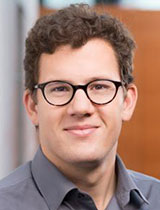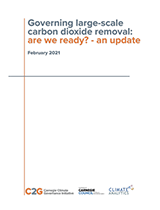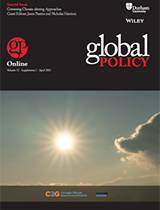Accelerating along the transformative pathway to net zero with large-scale carbon dioxide removal and storage
UN Climate Change Conference of the Parties (COP26) Joint Side Event
Carnegie Climate Governance Initiative (C2G) and CO2GeoNet
6 November 2021 at 11:30 GMT
Rapid and transformative action is needed to reduce emissions and tackle climate change. Large-scale carbon dioxide removal (CDR) has a key role to play in achieving net zero and net negative emissions. Effective governance is needed to achieve the Paris temperatures goals and deliver the Sustainable Development Goals (SDGs) to minimize climate risks and ensure a sustainable future.
In addition to a primary focus on emissions reductions and adaptation, carbon dioxide removal (CDR) and storage will likely play a pivotal role in delivering the Paris Agreement goals. Based on the science assessed by the IPCC in its Special Report on Global Warming of 1.5°C and the recently released Working Group 1 report of its 6th Assessment, this event will explore some of the challenges around scaling-up carbon dioxide removal as part of the transformative action needed to deliver net zero and subsequently net negative carbon dioxide.
Drawing on lessons from developing carbon dioxide capture and geological storage and approaches to governing greenhouse gas removals in the UK, Norway and elsewhere, speakers will look at the role of governance to address important issues such as risk management, permanence, accounting, and financing. Whilst also exploring possible incentives that could help create opportunities to align CDR development and governance with the delivery of the SDGs, drawing on examples from the Global South.
Speakers
Alex Milward, Director, Carbon Capture Utilisation and Storage, Department for Business, Energy and Industrial Strategy, UK Government
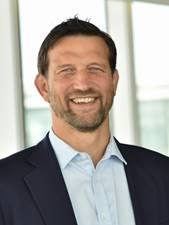 Alex Milward enjoys working on initiatives that improve the dimensions of People, Planet and Profit. For him this involves working on the Sustainable Development Goals 7 and 8 with organizations that provide a societal benefit in getting the right balance between: providing affordable, life enhancing energy; sustaining the planet by accelerating the transition to lower-carbon systems and reducing social inequality.
Alex Milward enjoys working on initiatives that improve the dimensions of People, Planet and Profit. For him this involves working on the Sustainable Development Goals 7 and 8 with organizations that provide a societal benefit in getting the right balance between: providing affordable, life enhancing energy; sustaining the planet by accelerating the transition to lower-carbon systems and reducing social inequality.
Prior to his current role of Director for Carbon Capture, Utilisation and Storage (CCUS) in the Department for Business, Energy and Industrial Strategy (BEIS), Alex was an energy consultant within EY and Accenture working on large scale, multi-national programmes across different parts of the value chain: Oil and Gas, Gas Distribution, Electricity Retail, etc.
Taken from The Prime Minister’s ten point plan – Carbon capture: Becoming a world-leader in technology to capture and store harmful emissions away from the atmosphere, with a target to remove 10MT of carbon dioxide by 2030, equivalent to all emissions of the industrial Humber today.
Ceri Vincent, President, CO2GeoNet
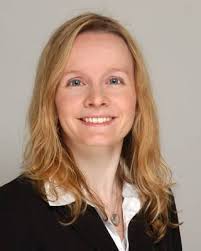 Ceri J Vincent graduated with an MSci in geophysics from the University of Leeds in 2000. She has worked at the British Geological Survey (BGS) on CO2 storage projects for over 19 years.
Ceri J Vincent graduated with an MSci in geophysics from the University of Leeds in 2000. She has worked at the British Geological Survey (BGS) on CO2 storage projects for over 19 years.
Ceri is science lead for the UK Energy Research Accelerator GeoEnergy Test Bed, a field laboratory designed to advance understanding of processes and impacts in the shallow subsurface and to refine tools and methodologies for monitoring CO2 storage sites.
Ceri is President of CO2GeoNet, the European Network of Excellence on the geological storage of CO2 (2019 – 2021). CO2GeoNet has observer status (RINGO) and Ceri has represented CO2GeoNet at the UNFCCC Conference of the Parties since 2015, including presenting and co-organising activities in order to communicate the key role for CO2 storage in meeting climate targets. Ceri is on the organising committee for the annual CO2GeoNet lighthouse event, the Open Forum, where the latest developments around geological storage of CO2 storage are presented and discussed by researchers, policy makers, project operators and representatives of think tanks and financial institutes.
Ceri’s CO2 storage research includes interpretation of geological and geophysical data for assessment and characterisation of potential storage sites at a range of scales (basin to reservoir) in the UK, China, South Africa and India (e.g. H2020 ENOS, H2020 SECURe, ACT SENSE, FP6 COACH, EuropeAid SAfECCS, China-UKNZEC, IEAGHG monitoring tools project and various commercial-in-confidence projects). Most recently, Ceri led the workpackage on ‘managing leakage risks for protection of the environment and groundwater’ for the H2020 ENOS (ENabling Onshore Storage) project.
Claire Fyson, Co-Head of the Climate Policy Team and Team Leader of Mitigation Pathway Analysis, Climate Analytics
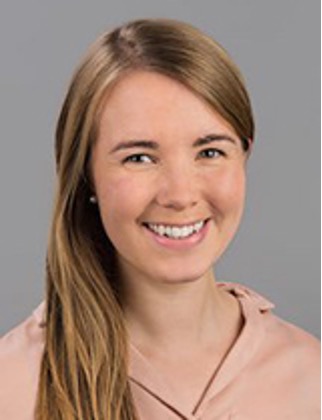
Claire Fyson joined Climate Analytics in 2016 and is now the Co-Head of the Climate Policy Team and leads the Mitigation and Modelled Pathways analysis group. Her work includes assessing NDC ambition and working with modelled pathways that are consistent with the Paris Agreement’s 1.5°C warming limit. She has contributed to Climate Action Tracker and 1.5°C National Pathways Explorer, focusing in particular on net zero targets, the role of carbon dioxide removal and mitigation options in the land sector. She has also published peer-reviewed literature on these topics.
Throughout her time at Climate Analytics, Claire’s work has bridged the Climate Policy, Science and Climate Diplomacy teams, including by providing scientific support to Small Island Developing States during negotiations under the IPCC and UNFCCC.
Before joining Climate Analytics, Claire worked for the Potsdam Institute for Climate Impact Research (PIK) in the PRIMAP Emissions Team, where her work centred on analysing the mitigation components of the INDCs, with particular focus on the land-use sector. She has also worked as a policy analyst in a sustainability consultancy in London (the Carbon Trust), mainly focusing on renewable energy.
She holds an MSci in Natural Sciences from the University of Cambridge, with a specialty in geological sciences, and an MSc in Environmental Change and Management from the University of Oxford. Before joining PIK, she also did a traineeship in the European Commission, working in the energy and environment unit of the Secretariat General.
Claire has published a number of peer reviewed publications, including
Fair distributions of carbon dioxide removal obligations and implications for effective national net-zero targets Kaylin Lee, Claire Fyson, Carl-Friedrich Schleussner (2021)
Governing large-scale carbon dioxide removal: are we ready? – an update Mace, M.J., Fyson, C.L., Schaeffer, M., Hare, W.L. Carnegie Climate Governance Initiative (C2G), February 2021, New York, US., (2021)
Fair-share carbon dioxide removal increases major emitter responsibility Claire Fyson, Susanne Baur, Matthew Gidden, Carl-Friedrich Schleussner, Nature Climate Change, (2020)
Eva Halland, Project Manager, Carbon Capture Storage and CO2 Offshore Storage, Norwegian Petroleum Directorate
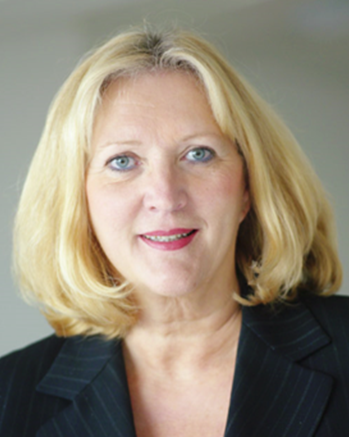 Eva Halland is an educated geologist and was the project leader for the Norwegian CO2 Storage Atlas. She has held various positions within the Norwegian Petroleum Directorate (NPD), responsibilities being petroleum exploration, field development and production, regulations, HSE and CCS. Her present position is as Project manager for CCS and CO2 offshore storage in Norway. She is chair of the Norwegian “CO2 Storage Forum”
Eva Halland is an educated geologist and was the project leader for the Norwegian CO2 Storage Atlas. She has held various positions within the Norwegian Petroleum Directorate (NPD), responsibilities being petroleum exploration, field development and production, regulations, HSE and CCS. Her present position is as Project manager for CCS and CO2 offshore storage in Norway. She is chair of the Norwegian “CO2 Storage Forum”
She was the Norwegian project leader for the UK-Norway ministerial CCS project “One North Sea” and appointed member of the selection panel and project advisor for the appraisal of UK offshore CO2 storage sites. Eva is an advisor to the World Bank Trust Fund and a member of the South African Pilot CO2 Storage Project International Advisory Committee. She has participated in the Advisory Board for several of the EU’s collaborative R&D projects on CO2 offshore storage and monitoring. She is the deputy chair of the R & D program CLIMIT.
James Mwangi, Executive Director, Dalberg Group
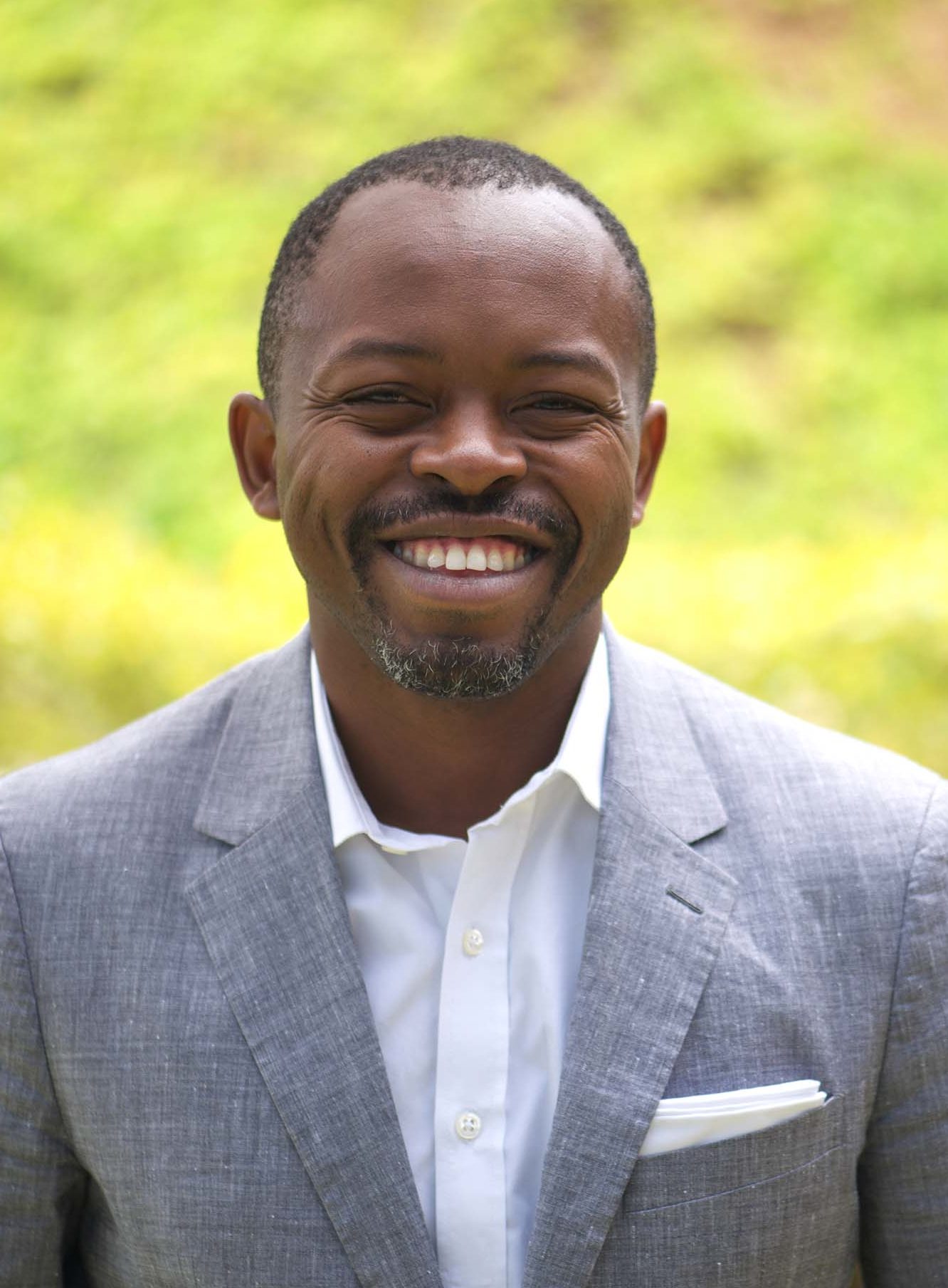 James Mwangi is the Executive Director of the Dalberg Group, a global collection of impact-driven businesses that work to build a more inclusive and sustainable world where all people, everywhere, can reach their fullest potential. James joined Dalberg as a founding member in 2002, started Dalberg’s first Africa office (Johannesburg) in 2007, and subsequently served as Global Managing Partner of Dalberg’s consulting business, guiding the formalization of its structure and governance as a global firm.
James Mwangi is the Executive Director of the Dalberg Group, a global collection of impact-driven businesses that work to build a more inclusive and sustainable world where all people, everywhere, can reach their fullest potential. James joined Dalberg as a founding member in 2002, started Dalberg’s first Africa office (Johannesburg) in 2007, and subsequently served as Global Managing Partner of Dalberg’s consulting business, guiding the formalization of its structure and governance as a global firm.
Since 2014, James has served as Executive Director of the Dalberg Group, supporting the growth of new businesses, and coordinating the efforts of all Dalberg entities in pursuit of a shared mission. In that role he has overseen the acquisition or incubation of 6 businesses that are today integral parts of the Dalberg Group operating from locations in 24 countries around the world and employing over 600 professionals.
James is a 2009 Archbishop Tutu Leadership Fellow of the African Leadership Institute, a 2013 Young Global Leader of the World Economic Forum and a member of the Young Presidents Organization. He currently serves on the boards of the Skoll Foundation, One Acre Fund, Old Mutual and the Nairobi International Financial Centre Authority. He holds a degree in economics from Harvard University.
Thelma Krug, Vice-Chair, Intergovernmental Panel on Climate Change
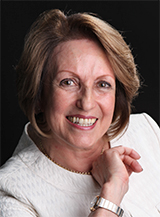 Thelma Krug is a former researcher at the Earth Observation Coordination at the National Institute for Space Research in Brazil, under the Ministry of Science, Technology, Innovation and Communication (MCTIC).
Thelma Krug is a former researcher at the Earth Observation Coordination at the National Institute for Space Research in Brazil, under the Ministry of Science, Technology, Innovation and Communication (MCTIC).
She was elected Vice-Chair of the Intergovernmental Panel on Climate Change (IPCC) for the Sixth Cycle of Panel (October 2015 – October 2022), after having been co-chair of the IPCC Task Force on National Greenhouse Gas Inventories from 2002 until 2015. She holds a PhD on Spatial Statistics from the University of Sheffield, UK. She has been Deputy National Secretary at the Secretary on Policies and Programs of Science and Technology at MCTIC; National Secretary at the Secretary on Climate Change and Environmental Quality from the Ministry of the Environment (MMA) and Director of the Department on Policies to Combat Deforestation under the Secretary of Climate Change and Forests at MMA.
For more than 15 years she has represented Brazil in the negotiations at the United Nations Framework Convention on Climate Change (UNFCCC), with particular focus on issues related to land use, land-use change and forestry (LULUCF); research and systematic observations; and reporting guidelines. Her main areas of interest are climate change and the role of deforestation, forest degradation and land-use change; REDD+; and national greenhouse gas inventories.
Moderator
Janos Pasztor, Executive Director, Carnegie Climate Governance Initiative
 Janos Pasztor (a Hungarian and a Swiss citizen) is Senior Fellow of the Carnegie Council for Ethics in International Affairs, and is Executive Director of the Carnegie Climate Governance Initiative (C2G).
Janos Pasztor (a Hungarian and a Swiss citizen) is Senior Fellow of the Carnegie Council for Ethics in International Affairs, and is Executive Director of the Carnegie Climate Governance Initiative (C2G).
He has four decades of work experience in the areas of energy, environment, climate change, and sustainable development. Before taking up his current assignment he was UN Assistant Secretary-General for Climate Change in New York under Secretary-General Ban Ki-moon.
Earlier, he was Acting Executive Director for Conservation (2014), and Policy and Science Director (2012-2014), at WWF International. He directed the UNSG’s Climate Change Support Team (2008-2010) and later was Executive Secretary of the UNSG’s High-level Panel on Global Sustainability (2010-2012). In 2007 he directed the Geneva-based UN Environment Management Group (EMG). During 1993-2006 he worked and over time held many responsibilities at the Climate Change Secretariat (UNFCCC), initially in Geneva and later in Bonn.
His other assignments included: the Secretariat of the UN Conference on Environment and Development (Earth Summit ’92); Stockholm Environment Institute; United Nations Environment Programme (UNEP); Secretariat of the World Commission on Environment and Development (Brundtland Commission); the Beijer Institute; and the World Council of Churches.
He has BSc and MSc degrees from the Massachusetts Institute of Technology (MIT).
Slide Presentations
- Eva Halland – CO2 Capture and Storage: Success Stories and Challenges for Upscaling Deployment
- Claire Fyson – Governance Challenges for Large-Scale Carbon Dioxide Removal
- Thelma Krug – CDR: Some Results in WG I Report
- James Mwangi – Climate Action: Transform Africa’s Growth or Ignore at the World’s Peril
